-
 WhatsApp: +86 19941574798
WhatsApp: +86 19941574798
-
 sale06@kfqizhongji.com
sale06@kfqizhongji.com
Polyurethane Coated Wheels Superior Performance Advantages
Polyurethane coated wheels provide exceptional load capacity, wear resistance, and floor protection for industrial applications, reducing long-term operational costs.
In industrial mobility solutions, the choice of wheels is no small matter—it directly impacts equipment operating efficiency, service life, and total cost of ownership. Among various materials, why has polyurethane become the preferred choice for coated wheels? This article provides an in-depth analysis of the irreplaceable advantages of polyurethane coated wheels through comparisons with traditional materials like nylon, rubber, and metal.
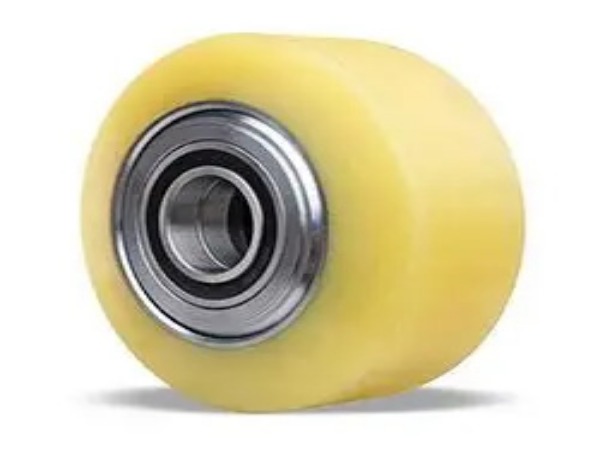
1. Exceptional Load Capacity and Cushioning: Balancing Rigidity and Flexibility to Protect Equipment and Floors
Polyurethane material possesses a very high elastic modulus, meaning it offers elasticity similar to rubber while providing significantly higher load-bearing strength and rigidity.
Compared to Nylon/Metal Wheels:Pure nylon or metal wheels are hard and have strong load capacity but almost no cushioning effect. When carrying heavy loads, the immense impact force is directly transmitted to the equipment bearings and structure, potentially damaging soft floors (such as epoxy floors). Polyurethane coated wheels, however, effectively absorb shock and vibration through their excellent elastic deformation, acting like "air cushions" for the equipment, significantly protecting the drive system and extending equipment life.
Compared to Rubber Wheels:Standard rubber wheels are prone to excessive deformation under heavy loads, leading to increased rolling resistance and a "beading" phenomenon. Polyurethane, under heavy pressure, exhibits smaller deformation, providing a more stable and efficient rolling experience.
2. Unmatched Wear Resistance and Longevity: Significantly Reducing Total Cost of Ownership (TCO)
Abrasion resistance is one of the most prominent properties of polyurethane. Its wear resistance index is typically 3-5 times higher than that of ordinary rubber.
Practical Value:In high-intensity application scenarios such as automated production lines and AGVs, this means the replacement cycle for polyurethane coated wheels is greatly extended. Although their initial procurement cost might be higher than standard wheels, viewed over the entire lifecycle, the maintenance costs and efficiency losses due to less frequent replacements and reduced downtime are substantially lower. The Total Cost of Ownership (TCO)is significantly better than other materials. This is crucial for enterprises pursuing continuous production and highly efficient operations.
3. Superior Surface Protection and Cleanliness: Safeguarding Valuable Flooring Assets
For modern workshops, warehouses, and commercial centers that have invested in high-grade epoxy floors, wooden floors, or marble floors, wheel-induced floor protection is a key consideration.
Compared to Metal Wheels:Metal wheels can directly scratch or dent floors and may generate metal debris that contaminates the environment.
Advantage of Polyurethane:The soft nature of polyurethane prevents floor damage. Furthermore, its non-carbon black formulation characteristics make it less prone to leaving black scuff marks, making it highly suitable for environments with stringent cleanliness requirements such as **clean rooms, food and pharmaceutical industries, and electronic dust-free workshops
4. Smooth and Quiet Operation: Enhancing Workspace Quality
Noise control is an essential aspect of modern industrial environments and commercial spaces.
Compared to Metal/Nylon Wheels:Metal wheels rolling on hard surfaces generate harsh noise, severely impacting the working environment.
Advantage of Polyurethane:The high hysteresis loss factor of polyurethane allows it to effectively absorb vibrational energy, converting it into minimal heat, thereby achieving excellent noise damping. This makes polyurethane wheels the ideal choice for places requiring quiet environments like offices, hospitals, laboratories, and hotels, enhancing overall comfort.
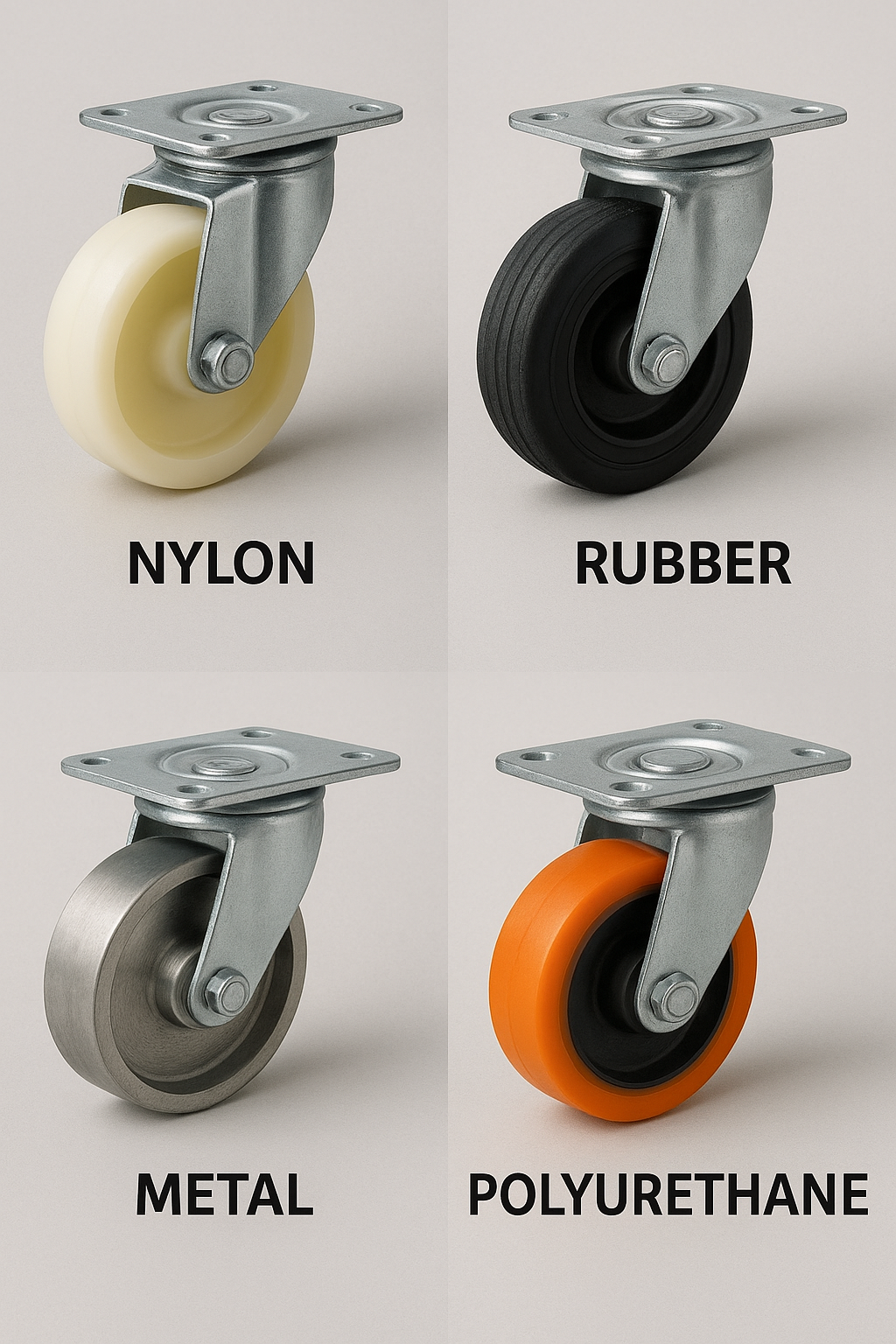
Conclusion
In summary, polyurethane coated wheels demonstrate comprehensive advantages over other materials through their balanced load capacity and cushioning, extreme wear resistance, excellent floor protection, and quiet operation. They are no longer simple accessories but a strategic choice for enhancing equipment reliability, optimizing the work environment, and reducing long-term operational costs. Specifying polyurethane coated wheels for your equipment is a wise long-term investment.
Categories
Recent Cases
Recent Products
Recent Blogs
- How Do Polyurethane Wheels Compare To Metal Wheels
- Why Choose Injected Polyurethane (TPU) Wheels for Your Equipment
- Why Roller Coasters Use NDI Polyurethane Wheels
- How to Choose a Poly Wheels Manufacturer That Won't Fail
- Why Polyurethane is the Choice for Pallet Jack and Forklift Wheels
- Pallet Stacker Drive & Idler Wheels for Automated Warehouses
- Mold-on Polyurethane Wheels
- Analysis of the Causes of Cleanroom Stacker Polyurethane Wheel
- Why Are NDI Drive Rollers the Premier Choice for Pallets
- Polyurethane Wheels in Mining

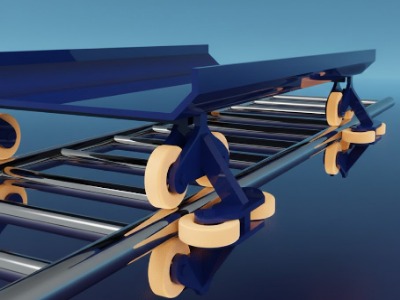
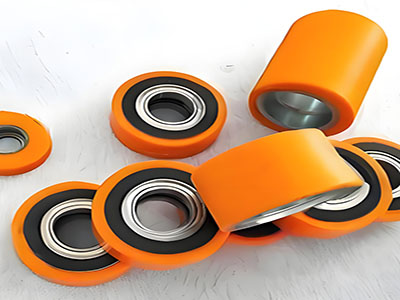
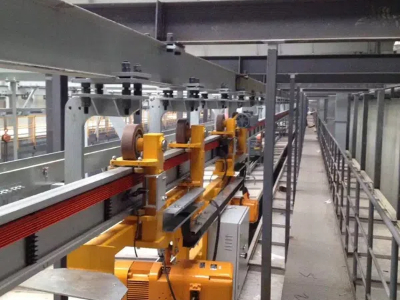
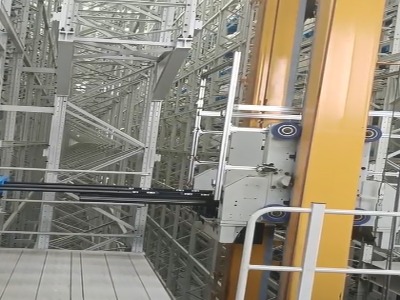
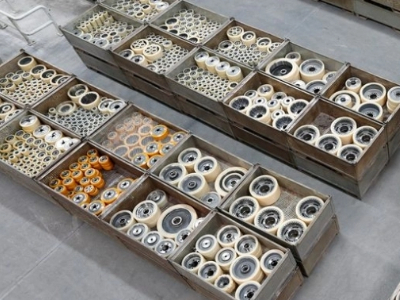
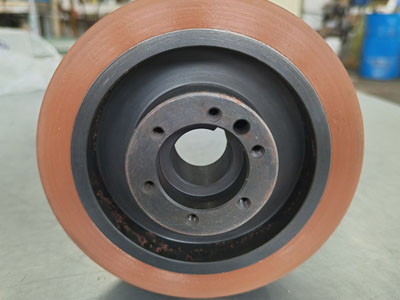
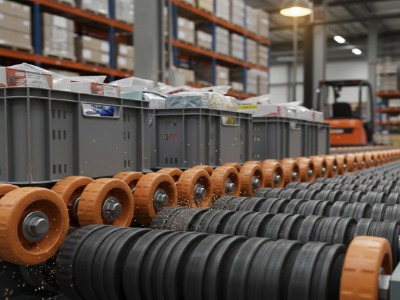
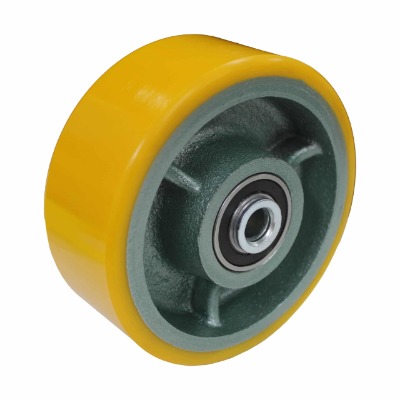
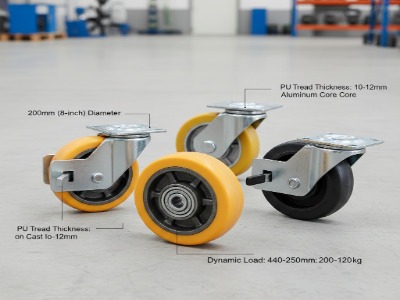
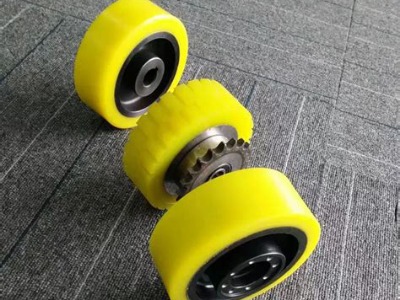
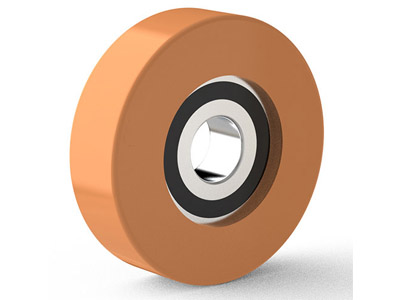
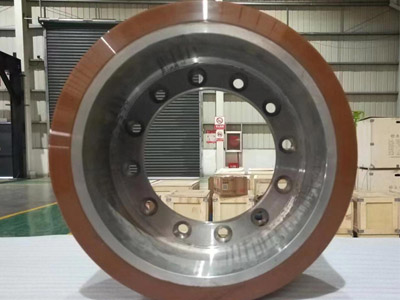
Why Are NDI Drive Rollers the Premier Choice for Pallets
Mold-on Polyurethane Wheels